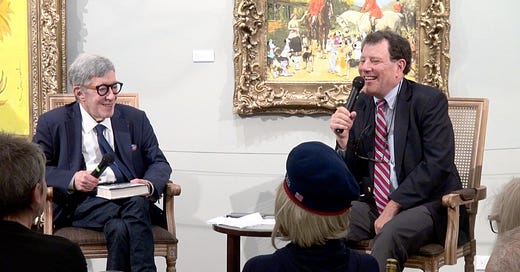Unleashed Books: Nicholas D Kristof is "Chasing Hope"
The new memoir from New York Times columnist is a tour de force of turmoil and tragedy, with uplifting moments from his travels through 150 countries. Hear from him directly here.
On May 14, Nicholas Kristof's memoir, Chasing Hope: A Reporter’s Life, was published by his regular publisher, Knopf. That same day, Kristof was awarded the Peter Kihss Award of The Silurians Press Club for his mentoring of young journalists and his contributions toward the next generation of writers of commentary and international affairs. Then, at a l…
Keep reading with a 7-day free trial
Subscribe to Andelman Unleashed to keep reading this post and get 7 days of free access to the full post archives.




